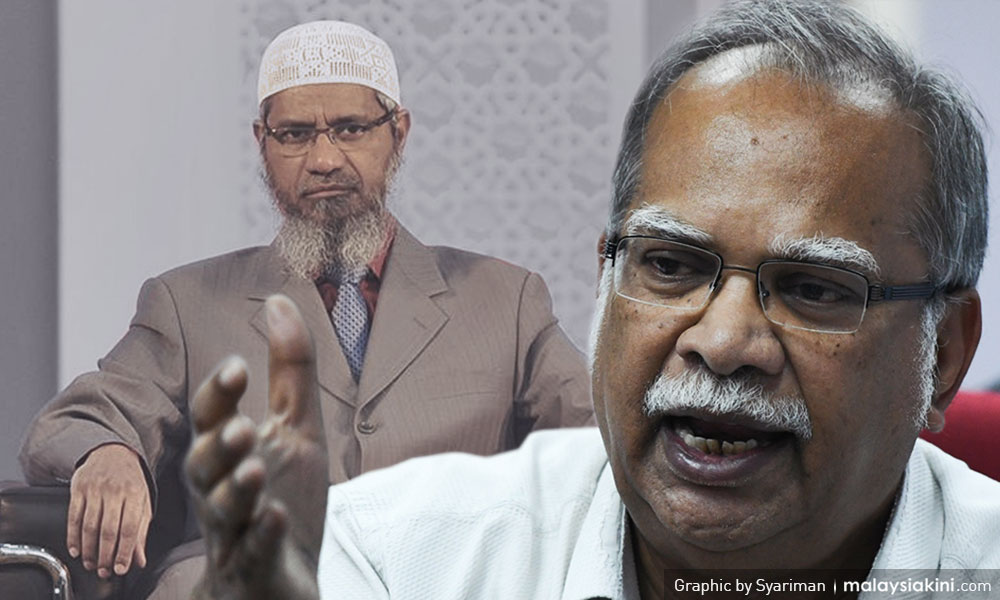
The first remarks made the by the new de facto National Unity and Social Well-being Minister P Waythamoorthy concerned the preacher Zakir Naik.
The latest development in the saga is Perlis mufti Mohd Asri Zainal Abidin’s call for a debate between Zakir and Penang Deputy Chief Minister II P Ramasamy, which Waythamoorthy believes is not necessary.
Following up from my previous article, there are a few things to unpack here.
I would say that in general, public debate or dialogue should be a welcome feature in our revitalised democracy.
Asri’s remarks surrounding this particular call for a debate, however, contained remarks that were made in extremely bad taste, and have no place in a united Malaysia.
Sinar Harian quotes him as saying “Based on their demands, I propose that whoever clearly loses the debate be sent back to India as is their wish. One of them will return there.”
Esteemed fellow columnist S Thayarapan correctly points out that neither in fact want to 'go back’ to India, and that there is an element of racism in this statement.
Asri is a colourful individual, who has long resisted any attempt to be put in box A or box B, as far as his stances go.
Personally, I think he often says things I think are healthy for the country, and he also often says things I think are unhealthy for the country.
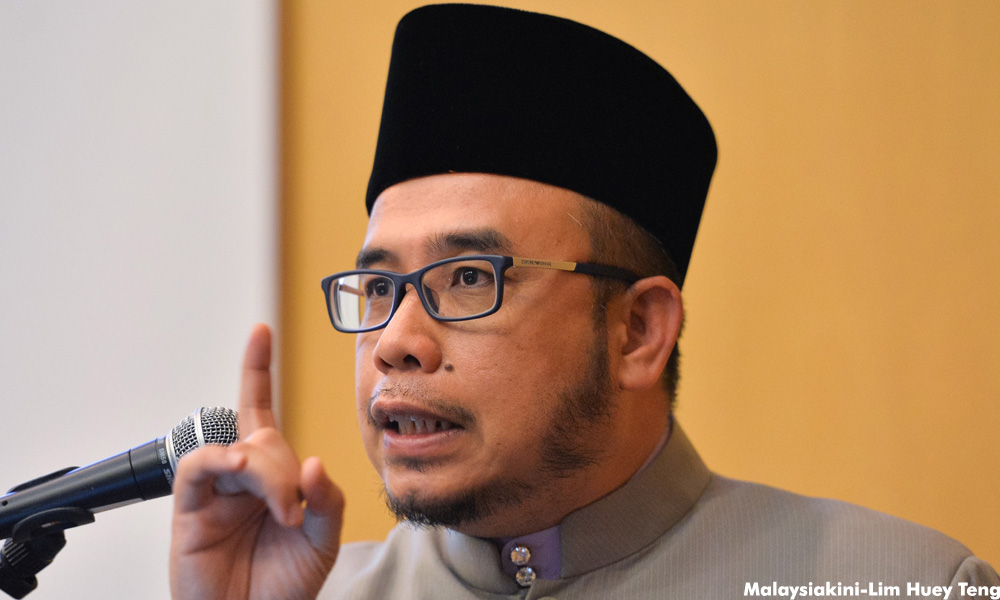
Just last week or so, he penned a lengthy column in Malaysiakini espousing what by Malaysian standards are extremely progressive views regarding Islam and LGBT rights in Malaysia, following the controversy regarding Numan Afifi. For this, I laud him.
On the whole, I get the impression that he is generally guided by attempting to interpret Islam to the best of his intellectual ability, and to base his views on those interpretations, rather than any pre-existing ideological predilections, which is a respectable approach.
Cycles of blind anger
Asri’s polemics with Ramasamy however, are probably a good example of a stain that affects so many of us – emotion and hubris overshadowing any real discussion of the actual issues at hand.
I look at it as hate breeding more hate.
Some will say this hate begins at Zakir, but we can continue that debate (begun in my previous article) a little later.
Ramasamy and others have since begun a virulent campaign to get Zakir kicked out.
This, in turn, seems to have galvanised some of the more right-leaning Muslims, who see this as an Islamophobic attack against Islam, and have risen angrily to Zakir’s defence.
In doing so, they also appear to have turned up the hate, and started bringing all sorts of things into this debate.
An old photo of Ramasamy ‘worshipping’ a photo of an AK-47 appears to have resurfaced for instance, and now there are calls for Ramasamy to be investigated for his links to the Liberation Tigers of Tamil Elam (LTTE).
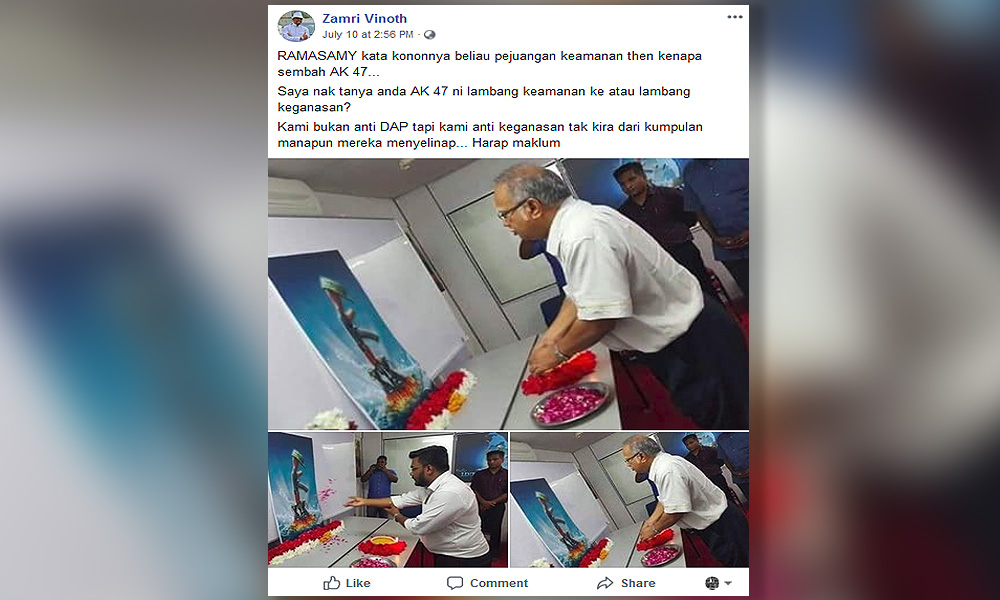
I personally believe that the LTTE committed many horrible atrocities during the civil war, just as the Sri Lankan government did. I wouldn’t go so far as to say that Ramasamy supports terrorism, but I would be willing to bet that you won’t ever hear him say anything bad about the LTTE.
I cannot in good conscience say this has absolutely nothing to do with the debate, but I do believe it is secondary, and that current efforts to talk about Ramasamy and the LTTE serve to heighten racial conflict and division in Malaysia.
In the end, the narrative becomes ‘simplified’ to one of Muslims vs non-Muslims once again, each thinking the other is encroaching on their space.
Debate facts, not wage war by proxy
We can see how this controversy is now expanding from the original issues of what Zakir actually said or did, and has ignited some sort of proxy war.
I think no one involved in this war is a complete ‘innocent’.
Zakir, Ramsamy, Asri, the LTTE, India's Bharatiya Janata Party, Wahhabis/Salafis and/or whoever else is out there in the backdrop to this conflict – everyone has done or said some pretty unsavoury things, to say the least.
This is hardly uncommon. All around the world, debate and conflict are fueled by pre-existing prejudice and bias as much as or more than whatever original issue or event began the fight.
Just because it happens all the time, however, doesn’t mean we need to keep letting it happen unchecked here in our backyard.
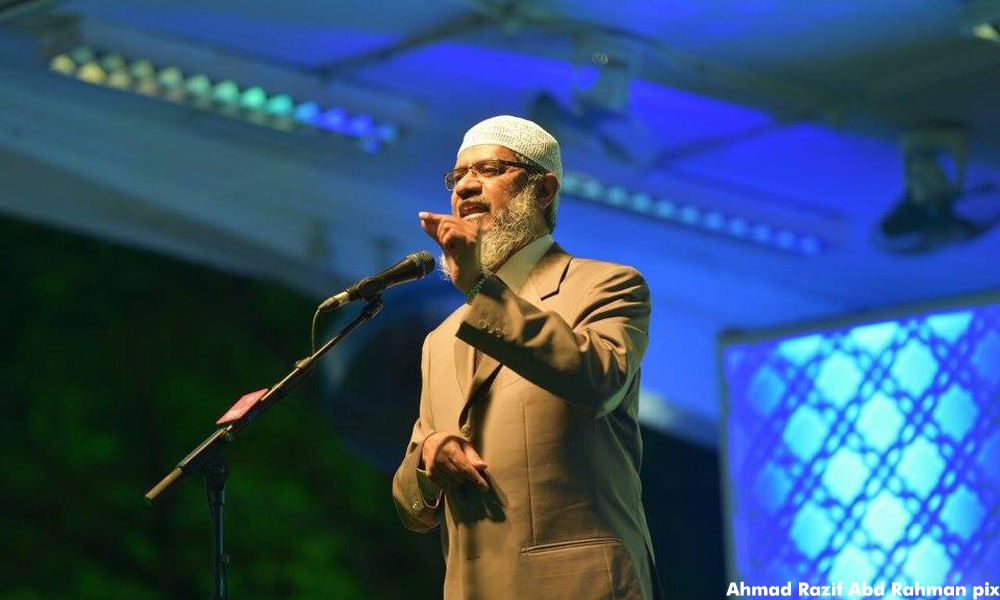
If the question facing the nation is about Zakir and what he has said or (perhaps more importantly) is saying, then let us start by focusing on that.
By this I mean it should be an objective, line by line examination of what Zakir said, in context, rather than fiery arguments that bypass or take for granted exactly what has or hasn’t been said.
I freely admit that my initial impressions of the kind of person Zakir is was coloured a lot by sensational headlines and soundbytes. I then, somewhat begrudgingly, decided to take the time to peruse the source material, verbatim.
Suffice to say, my views changed a little, and became more nuanced. In this regard, perhaps he is not so dissimilar to Asri.
Given that the Indian government is now run by a Umno-like party with strong tones of Hindu nationalism, the fact that the charge sheet against Zakir has yet to be sighted, and the fact that Interpol has not issued a red notice for Zakir, we also cannot rule out that there is an element of political persecution in the hunt for Zakir and how some media portrays him.
Perhaps we can posit at least two scenarios. One, we have someone who is unambiguously and consistently spreading hate or inciting violence. Two, we have someone who is spreading a lot of ideas we don’t agree with.
If anyone can produce enough verbatim evidence (video is always best) that is professionally and rigorously compiled, that Zakir is the former – enough to satisfy a court of law, or at least somehow the court of public opinion – then I say, arrest, extradite or deport him by all means. Everything else is sound and fury.
If we cannot do so, we must question whether we are practising consistent standards of free speech.
Consistent defense of free speech
Thayarapan’s latest article offers many interesting points to discuss, in this regard.
I hope the good commander will correct me if I err, but I believe one of the things he is arguing is that Zakir should be deported because he is a hatemonger, and also because his ideas are “anathema to the supposed ideals of Harapan.”
The hatemonger part is of course the key point of contention, and to debate that properly, we would, as I mentioned, have to go line by line through many of the things that Zakir has said.
If, however, the basis for wanting to extradite Zakir is that what he is saying is disagreeable to the ruling party’s ideology, or even the ideology of – for example or for argument’s sake – the majority of Malaysians, then we appear to find ourselves in a different ballpark.
Thayarapan has been a tireless advocate for freedom of speech, and has made many exceedingly good arguments in his many columns.
I think it would fair to say that a lot of his ideas over the years would make many Malaysians uncomfortable – especially those of a religious or conservative bent.
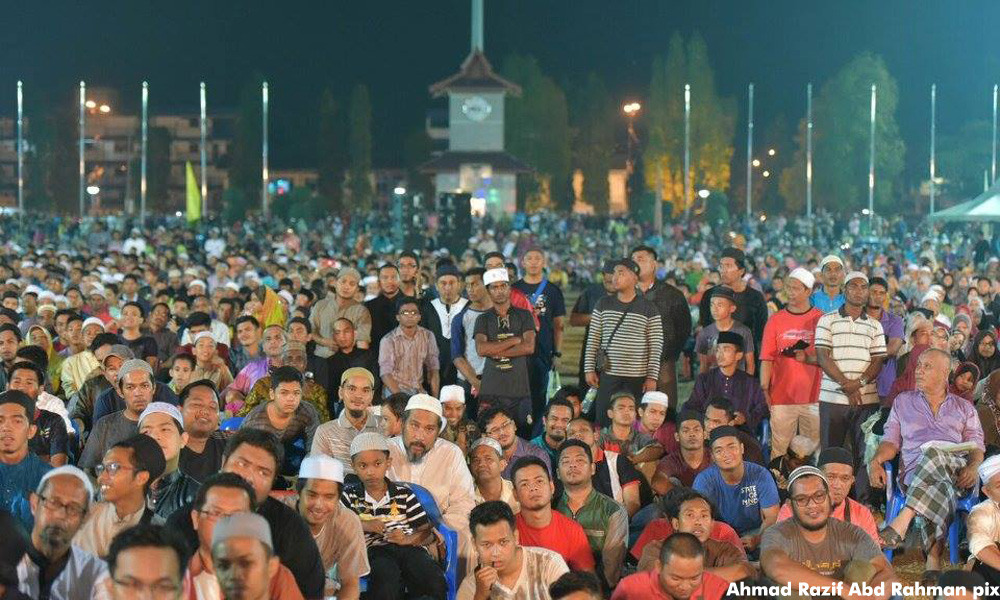
There’s nothing unusual about this, I’m sure things I write make people uncomfortable, and things that religious or conservative Malaysians say make some of us uncomfortable too.
That’s no reason to kick someone out of Malaysia. This definitely holds true in the case of Ramasamy – making Asri’s jibe about the loser of the debate having to leave extremely deplorable and in bad taste – but if we are being absolutely consistent here, it probably holds true in the case of Zakir as well.
Free marketplace of ideas
I believe all ideas have a place under the Malaysian sun.
The last thing this means is that any of us have to agree with any of these ideas. Again, however, as long as those ideas stop short of inciting violence, I believe we should practice arguing with those ideas, rather than trying to shut them up or kick them out.
I think it’s more than okay to speak out against ideas that make us uncomfortable, even using arguments that may make other people uncomfortable. This is the foundation of a healthy democracy.
There are times when arrests, extraditions or deportations may be appropriate, but that bar should be set relatively high.
If there is to be some sort of public debate regarding Zakir, I believe that it should not be yet another sensationalised episode of people screaming past one another, but a rational and measured discussion of what he has said – preferably based on full video recordings.
Now that we have a de facto minister of national unity, perhaps he can help to organise and steer discussions in a way that promotes mature discourse, and side steps blind, emotional table thumping.
NATHANIEL TAN is curious about the ministry of national unity. He can be reached at nat@renyi.net. - Mkini


No comments:
Post a Comment
Note: Only a member of this blog may post a comment.